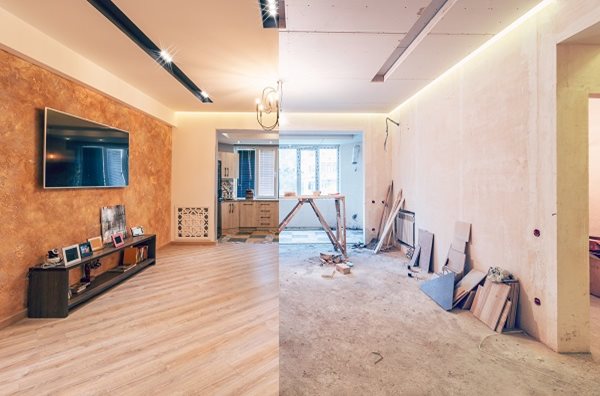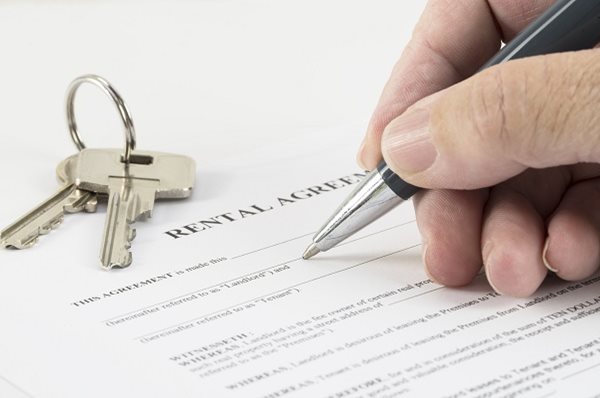Deciding where to live is a huge, sometimes life-changing process — one that involves so much more than your future address. No matter who you are, the choice is rarely simple. So many factors come into play, not the least of which is the initial dilemma: should you rent your home, or should you purchase?
There’s no cut-and-dry answer out there; the decision depends on who you are, what your financial situation is, what you want, and what kind of plans you have for the future. However, there are some factors you can consider that may help you decide what fits you and your lifestyle best. While there’s no “right” choice for anyone, the following factors may help you make your ultimate decision.
Financial Situation

Among the most important things to consider is money. While some may look at their income and make their decision based on what monthly payment they can afford, there’s more to the choice than just mortgage vs. rent.
When it comes to renting, the costs directly associated with the apartment are relatively few. When you sign a lease, you agree to pay a certain fixed amount per month for as long as your lease lasts — usually 1 year. After that lease is up, typically landlords or property managers will raise your rent a small percentage if you choose to renew. Outside of your monthly rent, to lease the apartment, you will also likely have to pay a number of one-time fees and payments, such as (but not limited to) an application fee, a security deposit, first and last month’s full rent, and/or a pet deposit or fee. These types of fees will vary depending on the property manager and may or may not be refunded to you after you move out.
Additionally, most landlords will require tenants to pay some — or all — of the unit’s utilities. Utilities might include electricity, gas, water, trash, and internet. The utilities you’ll pay on a rental vary from unit to unit and could mean entire tenant responsibility to total coverage by the property manager. Be sure to confirm what your responsibility will be before signing the lease.
Homeownership, on the other hand, has considerably more upfront costs. First and foremost, when purchasing a home, you will need to make a down payment. While you don’t necessarily need to pay the standard 20% down payment upfront, it’s generally a good idea to do so to avoid extra interest and private mortgage insurance costs. Depending on the home you’re looking at, you may not have the cash on hand to pay the down payment upfront. In this case, renting might be ideal, as it gives you a chance to save the cash necessary before making your move. As a homeowner, you may also incur other fees you would not face as a renter, such as property taxes and possible Home-Owners Association (HOA) fees. You may also find that your mortgage payments vary greatly depending on the current housing market, your credit score, and the term of your mortgage.
One expense that often takes homeowners by surprise are the closing costs associated with purchasing their home. In addition to the aforementioned down payment, you will also be faced with a wide range of various closing costs — which can add up to an amount that often surprises even veteran homeowners. Closing costs can include funding for an escrow account, title insurance, administrative fees, appraisal fees, and taxes — just to name a few. On average, closing costs range from three to five percent of the home’s purchase price. For example, on a $300,000 home, closing costs could be anywhere from $9,000 to $15,000. If you are serious about purchasing a home, be sure to calculate all possible types of expenditures before creating your savings plan.
The major difference between the money you’ll pay for rent and money you pay into a home you own is equity. While rent is paid directly to a property manager or landlord, the down payment, mortgage, and any renovations you do will ultimately result in an asset that you own, and one that typically appreciates in value over time. If you choose to move after purchasing a home, you can typically sell at a premium, which not only will go towards your next home, but will help cover fees and miscellaneous costs associated with purchasing a home.
Interested in comparing your monthly rent with a possible mortgage? Check out BALANCE’s Rent vs. Buy Calculator to see when — and if — you’ll break even.
That being said, rent paid is often seen as being “lost” money, but this is not the case! While the money you pay doesn’t result in equity in the form of a home, you aren’t just throwing your money away. Think of renting your home as more of a service than purchasing a product. You pay your landlord a certain amount, and in turn they provide you with a shelter that they maintain — which brings us to our next point.
Time and Effort

Besides having the financial means for all the costs associated with purchasing a home, you’ll also need to consider how involved you’ll want to be with the upkeep with your home. With a rental, your lease requires that your landlord or property management company will maintain the property. That means upon move-in, the unit will be cleaned and throughout your lease, they will perform any repairs and attend to most issues that arise. So, if your fridge breaks or your tub backs up, you won’t be saddled with the burden of replacing a major appliance or costly repair bills. In fact, many leases don’t even allow you to make any repairs of your own to prevent further damage.
If you purchase your home, however, any repairs or maintenance fall entirely on you. Air conditioner breaks on the hottest day of the summer? You’ll need to hire a repairman or replace it entirely. Sink clogged? You’ll have to snake the drain yourself. For some, the burden of maintaining their property is not only one they can’t afford, but one they simply do not have time for.
Not only will you need to put time and effort into your home when you purchase it, but you’ll also need to set aside time before you even sign the paperwork. No matter if you choose to rent or purchase, you will need to set aside time to find a place. If you choose to rent, you will likely find yourself having to act fairly quickly and early, depending on the market. Typically, rental units go on the market about two months before their lease start date, and if they’re in a popular area, they can be gone as quickly as a couple of days after they come on the market. Once you know your ideal move-in date, back track two months (or earlier) to begin your search. You’ll need to set aside time to look at units and decide quickly.
Looking for a home to own, however, is a little slower paced. Still, you’ll likely want to devote far more time to deciding on which house or condo you will buy. Houses will often stay on the market for much longer than rental units, so you’ll have plenty of time to look at listings and open houses. Since you’ll be owning your home, you should plan to look at the unit multiple times. You will also need to factor in the time and effort involved in getting the home inspected for various issues, such as foundation and structural condition.
Freedom

If you do find yourself with the time needed to devote to make your house a home, then homeownership offers a lot more flexibility. As a renter, you are unable to make any changes to your apartment or house without incurring charges or even violating your lease. That can mean anything from replacing the showerhead in your bathroom to painting the walls. But if you purchase your home, you have the freedom to make any changes you like — as long as you have the time and money.
Something else to keep in mind: while your landlord is contractually obligated to maintain your unit, that doesn’t always mean they’ll do so to your standards and preferences. While as a homeowner, you might seek out sturdy, fashionable fixtures for your home, your property manager will likely choose the most cost-effective choice. That also means that when things in your unit break, they will do anything they can to repair before they replace. While you still will not incur the costs of these repairs, you may find yourself frustrated with the choices your landlord makes, while as a homeowner, you have the choice to invest in high-quality appliances — or not.
Rental homes also provide their own brand of freedom. Because you’re only obligated to your unit for as long as your lease, you are free to leave when your term ends. This is ideal if you’re new to the area, not happy with the unit you’ve rented, or plan to move to another city. While you generally have to wait to sell your home to move when you’re a homeowner, renting allows you the flexibility to up and leave if you please — as long as your lease allows it. This can mean paying a fee to terminate your lease, subletting to another tenant for a short amount of time, or even re-letting yourself.
On the other hand, homeowners are relatively stuck in place once they close on their property. For some, this is ideal. As a rule of thumb, it’s recommended that homeowners plan to stay in place for at least 5 years before making a purchase. Homeowners can also offset their mortgage costs by renting out a room — or even their entire house. If you’ve found the perfect home, in the perfect city, with no plans to move, then homeownership is for you!
Location

Last, but certainly not least: Where do you want to live? Once you’ve figured out what you can afford, what kind of time and effort you’re willing to put in, and what kind of freedom you need, it’s time to consider where you want to live.
Do you want to be close to a relatively expensive area? Renting might be the right choice for you. While many people might want to live in a city to be close to work — not to mention all the city has to offer — they may not be able to afford to purchase a home or condo in the city limits. Rentals, however, offer accessibility to a wider range of budgets. For those who still find rent too steep, rentals offer the possibility of breaking up rent with a roommate or two.
If you’re looking to live in the suburbs or a less urban area, now may be the time to purchase a home. If you have the capital, found the perfect listing, and are up to the challenge of maintaining and updating your space, there are plenty of reasons to take the plunge. You may find that life in the city is too expensive and crowded, or that you prefer knowing your neighbors.
Have a family, or thinking of starting one? You’re not alone. If kids are in your future — or present — another factor in choosing your location is finding a home in your ideal school district. A huge part of finding a home and location, often a location with the perfect school district and be a huge variable in the cost of a home. A great school district can drive up the cost of an otherwise affordable home or reduce the number of ideal homes entirely. Many find a smaller home in a great school district more fits their needs than a large one elsewhere, while others can rationalize a higher purchase price if it means their kids are attending the best schools. If a great school district is a top priority for you, you may need to adjust your budget — or your standards.
Renting Vs. Buying: What Should You Do?

Ultimately, there is no “right” answer. While you may hear people tell you that homeownership is the way to go every time, it’s definitely not for everyone. Renting allows you to get to know an area before you commit or even afford an upscale area that you simply couldn’t if you tried to buy. You may be tempted to compare rental prices with potential mortgages, but it’s important to remember that as a homeowner, you’ll be paying for a lot more than just that monthly mortgage.
Still not sure what to do? We can help! Check out our mortgages page for more info and to calculate your possible mortgage payment. You can also reach one of our mortgage experts at mortgage@fncu.org or by calling (888) 328-8677, extension 505. We’re happy to walk you through the process and answer any questions you may have.
By Maria Carvell, Marketing Relations Supervisor